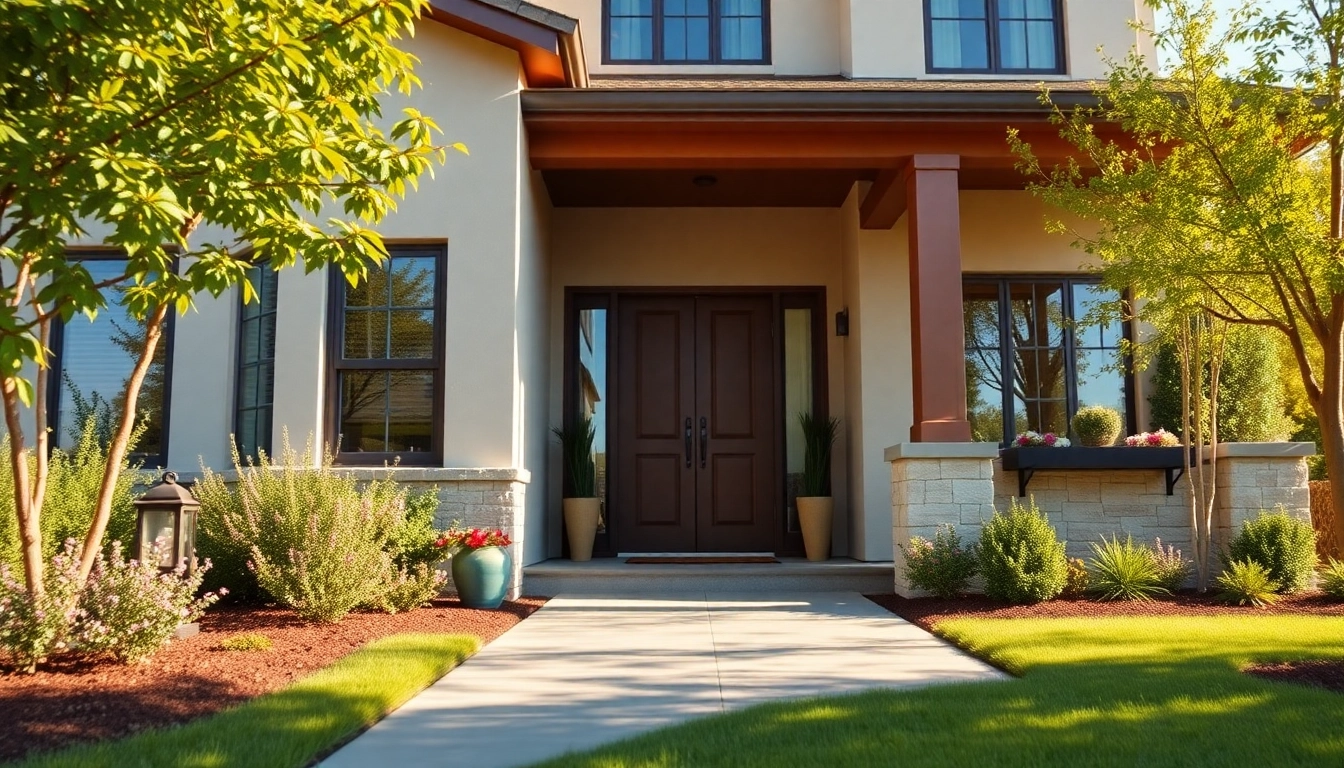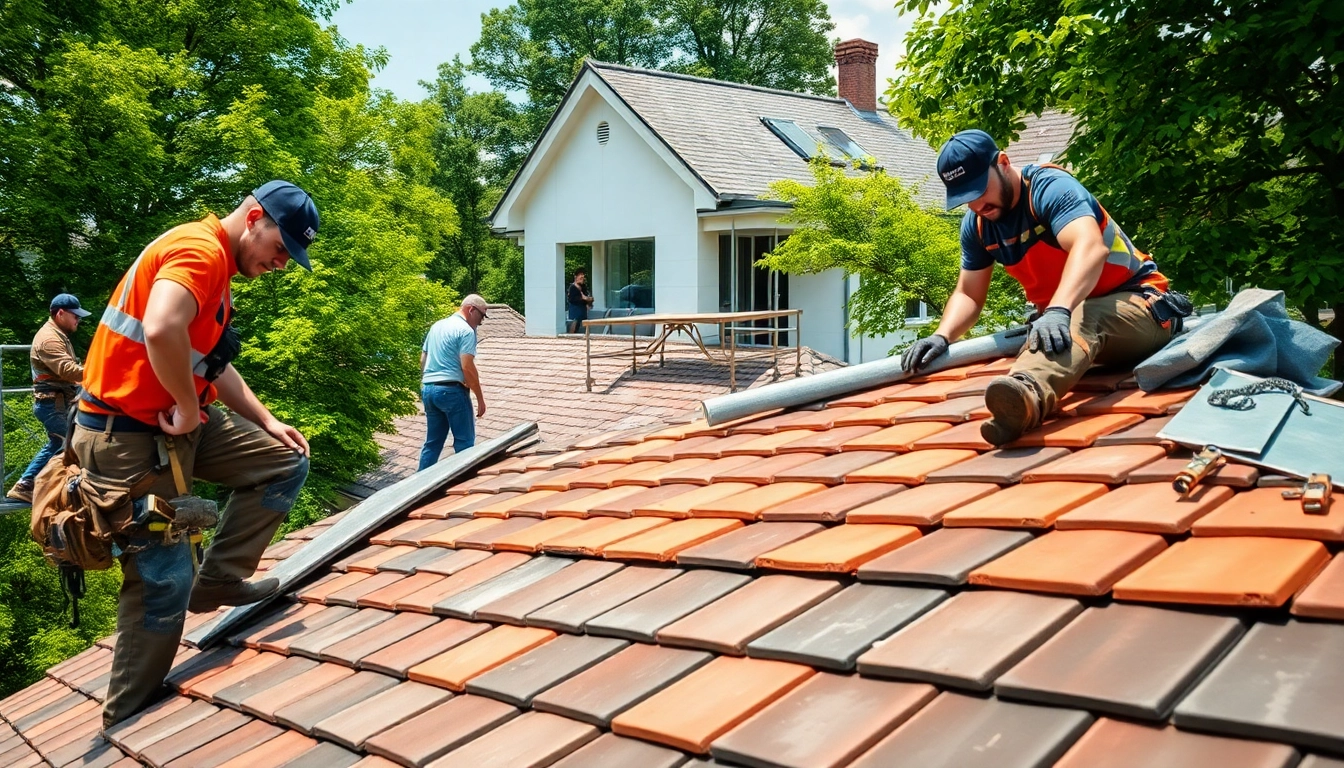Understanding the Home Buying Process
Buying a home is one of the most significant decisions and investments many individuals will make in their lifetime. The home buying process can often feel overwhelming, especially for first-time buyers. Understanding the key components of this process can streamline your journey and help ensure you make informed decisions. If you’re looking for guidance on how to buy a house, this guide will walk you through the essential steps every buyer should be aware of.
Key Steps to Buy a House
The path to homeownership consists of several crucial steps that should not be overlooked. Here’s a detailed breakdown:
- Assess Your Readiness: Before embarking on your house-hunting journey, ensure you’re emotionally and financially prepared for the responsibilities of homeownership. This includes maintaining a stable job, having some savings, and being ready to commit long-term.
- Set a Budget: Determining your budget helps narrow down your options. Consider your monthly income, debts, and expenses to establish how much you can afford on a monthly mortgage payment.
- Get Pre-Approved for a Mortgage: Obtaining a pre-approval letter from a lender demonstrates to sellers that you are a serious buyer. This step involves a credit check and helps you understand your price range.
- Find a Real Estate Agent: Partnering with a knowledgeable real estate agent can ease your home-buying experience. They will assist you with listings, negotiations, and paperwork.
- Start House Hunting: With your pre-approval in hand, explore neighborhoods and properties that fit your criteria. Attend open houses and schedule private showings to get a feel for different homes.
- Make an Offer: Once you’ve found the right home, work with your agent to draft a competitive offer based on comparable properties.
- Schedule a Home Inspection: It’s critical to identify any hidden issues within the home. A professional inspection can provide you with insights that may impact your purchasing decision.
- Close the Deal: After negotiations and contingencies are agreed upon, finalize the financing and ensure all documentation is in order before closing day.
Common Mistakes to Avoid
Even the most prepared buyers can make mistakes during the home buying process. Here are some common pitfalls to avoid:
- Skipping the Pre-Approval: Not getting pre-approved can waste time and may lead to disappointment if you find a home beyond your budget.
- Underestimating Additional Costs: Beyond the purchase price, buyers often overlook closing costs, property taxes, and ongoing maintenance expenses.
- Neglecting Home Inspections: Skipping this step can result in costly repairs down the line, considerably impacting your investment.
- Rushing the Decision: Buying a home is a significant commitment; do not succumb to pressure. Take the time you need to ensure the property meets your needs.
Timeline for Buying a House
The time it takes to purchase a house can vary, but an approximate timeline looks like this:
- Pre-Approval and House Hunting: 1-3 months
- Making an Offer to Closing: 30-60 days
In total, expect the home buying process to take anywhere from 2-6 months, depending on how quickly you find the right property and finalize your financing.
Setting Your Budget for Home Purchase
Establishing a budget is a critical step in the home buying process. It determines not only what you can afford in terms of monthly payments but also shapes your expectations for the types of homes available to you.
How Much Can You Afford to Buy a House?
A common rule of thumb states that your monthly housing expenses should not exceed 28-30% of your gross monthly income. Calculate your affordability by factoring in:
- Your income
- Current debts (credit cards, student loans, etc.)
- Other expenses (utilities, groceries, etc.)
This holistic approach helps you avoid financial strain while maintaining a comfortable lifestyle.
Understanding Mortgage Types and Rates
Mortgage options can significantly impact your overall buying experience. Here are the most common types:
- Fixed-Rate Mortgage: Offers a stable interest rate and consistent monthly payments throughout the life of the loan.
- Adjustable-Rate Mortgage (ARM): Features a lower initial interest rate that adjusts periodically based on market conditions, which may result in fluctuating monthly payments.
- FHA Loans: These are government-backed loans that tend to have lower credit requirements and down payments for qualified buyers.
Assess your financial situation and consult with a mortgage advisor to find the best fit for your needs.
Calculating Additional Costs Beyond the Purchase Price
Home buyers should never forget about the additional costs associated with buying a house. These can include:
- Closing Costs: Typically 2-5% of the home’s purchase price, these fees cover various expenses during the closing process.
- Home Insurance: Protecting your investment is crucial, and annual premiums can vary significantly based on location and the home’s value.
- Maintenance and Repairs: Ongoing costs that arise from wear-and-tear, including upkeep of appliances, systems, and landscaping.
By planning for these costs, you’ll ensure you’re fully prepared for homeownership.
Finding the Right Property
Now that you’ve established your budget, it’s time to dive into the home searching phase. This can be the most exciting yet exhausting part of the process.
Popular Neighborhoods to Buy a House
The location of your home can affect your lifestyle and property value significantly. Here are some factors to consider when assessing neighborhoods:
- Proximity to Work: Short commute times contribute to work-life balance.
- Quality of Schools: Higher-rated schools can boost property values and are a priority for many families.
- Local Amenities: Access to parks, shopping, dining, and other conveniences can enhance your living experience.
Research neighborhoods in depth and visit them at different times to gain a better understanding of life in those areas.
Essential Features to Look For in a Home
Your dream home should meet your current and future needs. Here are some features to consider:
- Layout: Ensure the floor plan suits your lifestyle, whether you prefer an open concept or traditional layout.
- Number of Bedrooms and Bathrooms: Consider your family size and room for guests or future family expansions.
- Outdoor Space: A yard or outdoor living area can be essential for families, pets, and entertaining.
Make a priority list and keep it handy as you view properties.
How to Use Real Estate Listings Effectively
Real estate listings are a fantastic resource. However, knowing how to interpret them is key:
- Understand Terms: Real estate jargon can be confusing. Familiarize yourself with common terms and abbreviations.
- Compare Listings: Create a spreadsheet or document to compare characteristics, prices, and features of different homes.
- Schedule Visits: Always view homes in-person to fully grasp their condition and suitability.
Being methodical and organized in your approach will make the searching process smoother.
Securing Financing for Your Home
With a budget in place and properties in sight, understanding how to secure financing for your home is crucial.
How to Get Pre-Approved for a Mortgage
The pre-approval process involves submitting documents to a lender to determine how much they are willing to lend you. Here’s what you typically need:
- Proof of income (W-2s, pay stubs)
- Credit history
- Debt-to-income ratio calculations
Once completed, pre-approval gives you a clear budget and strengthens your position when making an offer.
Working with Lenders: What You Need to Know
Choosing the right lender can impact your mortgage terms significantly. Here are some tips for working with lenders:
- Research Multiple Lenders: Get quotes from various lenders to compare interest rates and terms.
- Consider Local vs. National Lenders: Local lenders may have better insight into your specific area and possibly more personalized service.
- Prepare Questions: Develop a list of questions regarding fees, terms, and loan structures to clarify the loan process.
Educating yourself about different lenders empowers you to make an informed decision.
Government Programs for First-Time Home Buyers
Various government programs exist to assist first-time home buyers. These may include:
- FHA Loans: Less strict credit requirements and lower down payments make these accessible.
- USDA Loans: Available for rural property buyers; these loans often require no down payment.
- VA Loans: Aimed at veterans, offering favorable terms without the need for a down payment.
Understanding these options can save you money and facilitate a smoother entry into homeownership.
Closing the Deal on Your New Home
After finding the right property and securing financing, the final stretch of the home buying journey involves closing the deal.
Understanding the Closing Process
The closing process brings together various parties — the buyer, seller, agents, and lenders — to finalize the sale. Here’s what to expect:
- Review Closing Disclosure: Ensure all terms match your expectations and it includes the final loan terms, fees, and closing costs.
- Final Walkthrough: Conduct a final inspection to confirm no significant changes have occurred post-inspection.
- Sign Documents: You’ll sign several important documents, including the mortgage agreement and property title transfer.
Being prepared for the documents and clarifying any lingering questions can smooth the process significantly.
What to Expect on Closing Day
On closing day, you will finalize the purchase and gain possession of the property! Here are some elements typically involved:
- Payment of Closing Costs: Ensure you have the necessary funds available to cover closing costs.
- Transfer of Ownership: Once the documents are signed, the property title is officially transferred to you.
- Getting the Keys: After the completion of the signing process and payment, you’ll receive the keys to your new home!
Celebrate this significant milestone and begin envisioning your new life as a homeowner.
Post-Purchase Tips for New Homeowners
After you’ve successfully closed on your home, consider these post-purchase tips to settle in comfortably:
- Change Locks: For safety reasons, change the locks as soon as you move in.
- Understand Home Maintenance: Familiarize yourself with the home’s systems, and schedule regular inspections as necessary.
- Establish a Budget for Monthly Expenses: Keep funds available for property taxes, homeowner’s insurance, and maintenance costs.
Equipping yourself with knowledge and a proactive approach can ensure your homeownership experience is a positive one.















Leave a Reply